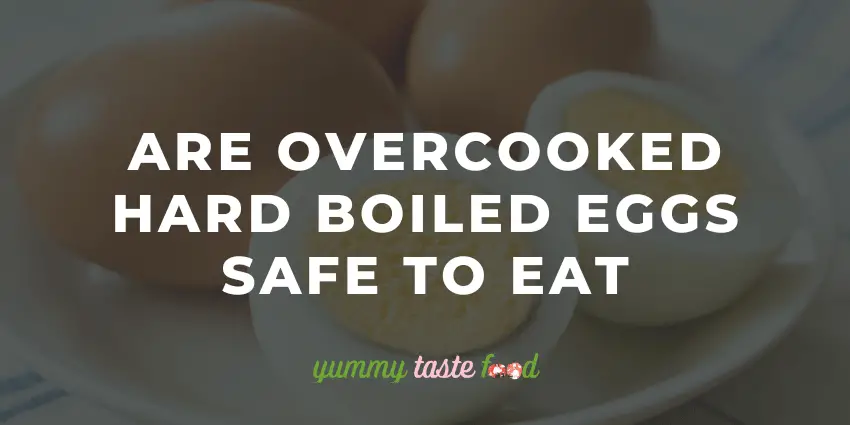
Newsletter Subscribe
Enter your email address below and subscribe to our newsletter

Enter your email address below and subscribe to our newsletter

Are overcooked hard boiled eggs safe to eat? Overcooked hard boiled eggs can be safe to eat, but you may find them nowhere near as enjoyable if you cook them correctly. However, if the egg is greenish or grey around the outside, they are best to be thrown out!
As a chef, I know that hard boiled eggs are a staple in many households, and they’re perfect for a quick and easy breakfast, a salad topping, or a snack. But overcooking them can affect the quality and safety of the eggs. In this article, we’ll dive into the safety, nutritional value, and many options to use hard boiled eggs for, and to answer the question of whether overcooked hard boiled eggs are safe to eat or not.
Overcooked hard boiled eggs are generally safe to eat, but they may not be as enjoyable as properly cooked eggs. Overcooking can cause the egg whites to become rubbery and the yolks to become dry and crumbly. Additionally, overcooked eggs can have a greenish ring around the yolk which is caused by iron and sulfur compounds. This is not harmful to eat but it is an indication that the eggs have been overcooked.
Overcooking your boiled eggs can cause the formation of iron sulfide between the yolk and the egg white. This results in a greenish ring around the yolk. While iron sulfide is not harmful to eat, it can affect the appearance and texture of the egg. It can also cause a strong sulfur smell which can affect the taste.
When hard boiled eggs are overcooked, the proteins in the egg whites can become rubbery and the yolks can become dry and crumbly. This can make the eggs less appealing in texture and taste. Additionally, overcooked eggs can develop a greenish ring around the yolk caused by iron and sulfur compounds. This is not harmful to eat but indicates that the eggs have been overcooked.
Eating hard boiled eggs that have been properly cooked and stored should not make you sick. However, if the eggs have been stored improperly or are spoiled, they can cause food poisoning. It is important to always check the eggs for any signs of spoilage before eating them.
There are several signs to look for to determine if your hard boiled eggs are overcooked:
If you’ve overcooked your hard boiled eggs and they’re not suitable for your intended recipe, you can still use them in other ways, such as in egg salad or as a topping for soups or stews. If you’re unsure about their safety or if they have spoiled, it’s best to discard them.
In conclusion, overcooked hard boiled eggs can be safe to eat, but they may not be as enjoyable as properly cooked eggs. Overcooking can cause the egg whites to become rubbery and the yolks to become dry and crumbly, and can also cause the formation of iron sulfide which can affect the appearance and taste. Always check the eggs for any signs of spoilage before consuming and if in doubt, discard them. If you’ve overcooked your hard boiled eggs, you can still use them in other ways, such as in egg salad or as a topping for soups or stews.